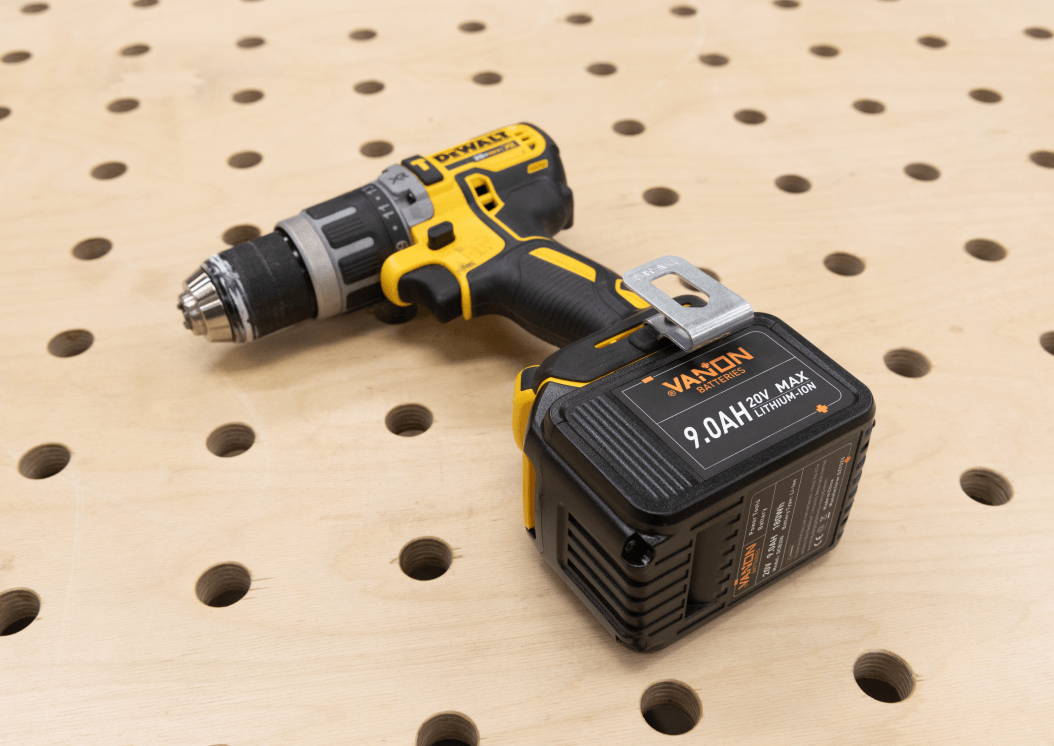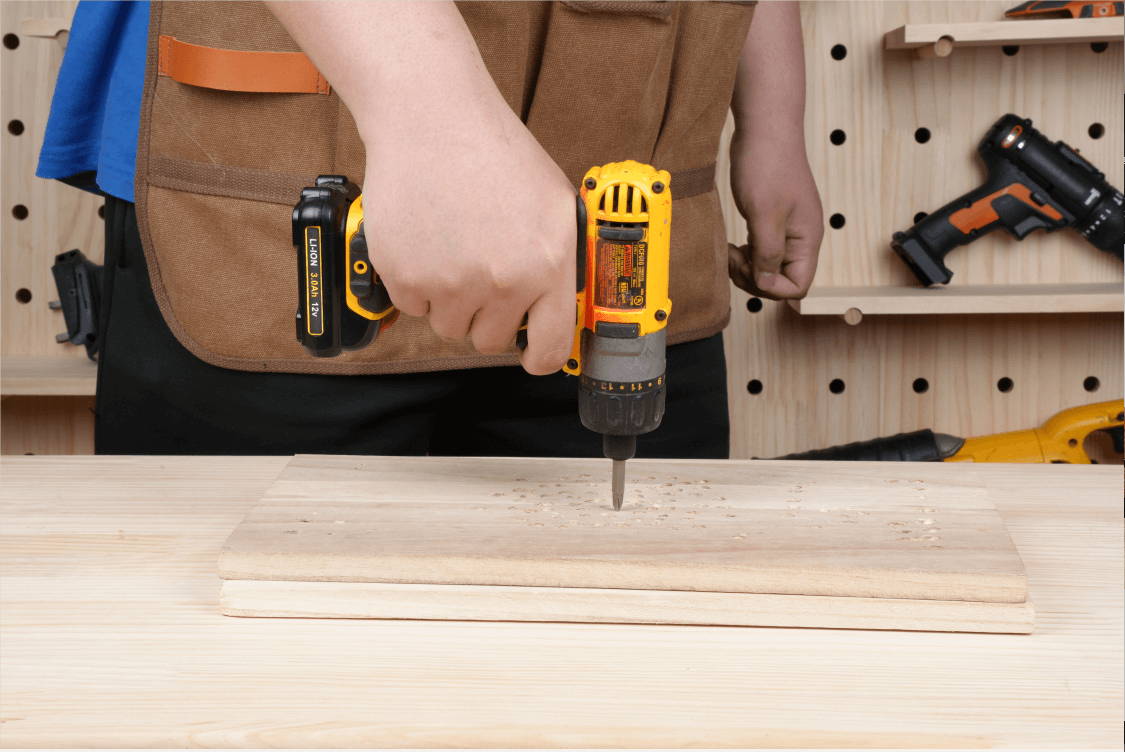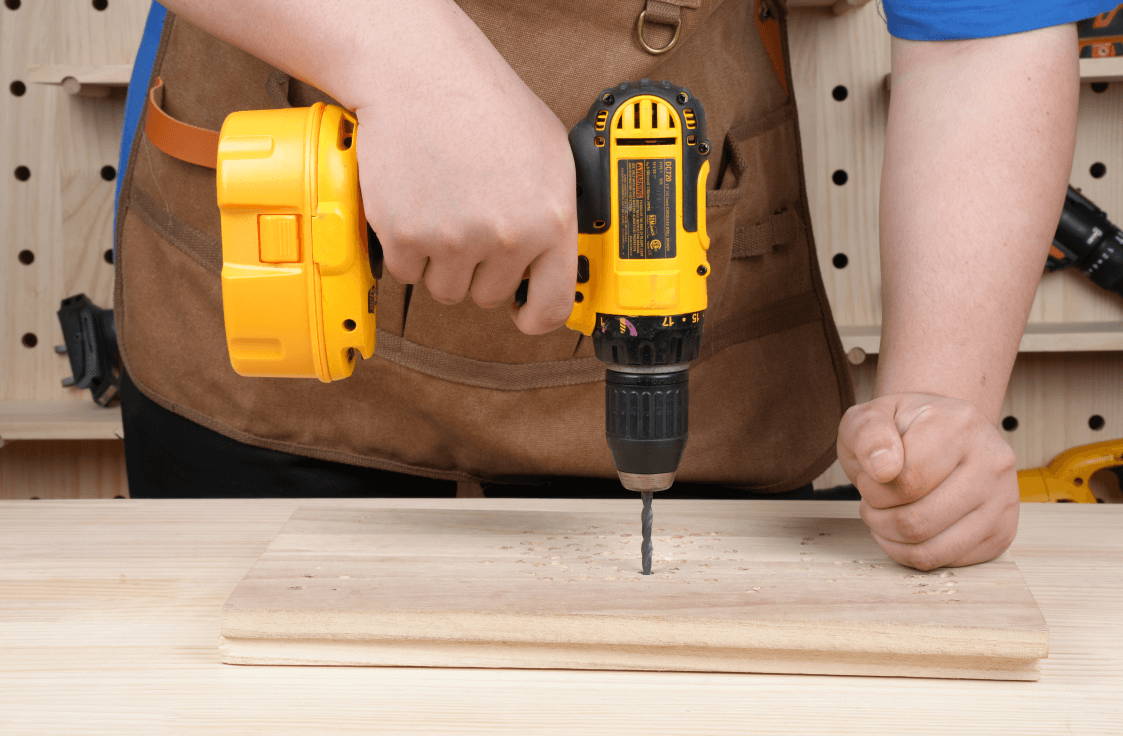Dewalt Batteries: Genuine vs. Aftermarket Options
When it comes to cordless power tools, Dewalt is a name that professionals and DIY enthusiasts trust for their reliability, durability, and performance. At the heart of every Dewalt cordless tool is its battery, providing the power and mobility that make these tools so versatile and convenient. However, as with any battery-powered device, Dewalt batteries have a limited warranty and will eventually need to be replaced.
Choosing the right replacement battery for Dewalt tools is crucial to ensure optimal performance, runtime, and safety. Let's look into the world of Dewalt batteries and explore the differences between genuine Dewalt batteries and aftermarket options. We will discuss key considerations, such as compatibility, battery types, signs of a failing battery, and factors to consider when selecting replacement options. By the end, you will have a better grip on how to make an cost-effective decision when it comes to replacing your Dewalt batteries.
Whether you're a professional contractor relying on Dewalt tools for your livelihood or a passionate DIYer tackling projects around the house, the importance of choosing the right replacement battery cannot be overstated. Let's dive in and explore the world of Dewalt batteries, from the widely used 20V MAX system to the earlier 7.2V models, and discover the best options to power your tools for years to come.
How Long Do Dewalt Batteries Typically Last?
Genuine Dewalt batteries, known for their quality and performance, have an average lifespan of several years with proper care and maintenance. Depending on usage, a Dewalt battery can typically last between 3 to 5 years. It's essential to follow recommended charging practices, storage guidelines, and avoid deep discharges to maximize their longevity.
Factors to Consider When Choosing Replacement Batteries for Dewalt Tools
- Compatibility: When selecting replacement batteries for Dewalt tools, ensure they are compatible with your specific tool model. Dewalt has a wide range of tools, and compatibility requirements can vary.
- Voltage and Capacity: Match the voltage requirements of your tool (e.g., 18V, 20V MAX) and consider the capacity (Ah) to ensure sufficient runtime for your intended applications.
- Battery Type: Dewalt primarily uses lithium-ion batteries for their modern cordless tools due to their higher energy density, longer runtime, and reduced self-discharge compared to older battery technologies like NiCad.
- Reputable Brands: Stick to reputable brands that specialize in manufacturing compatible replacement batteries for Dewalt tools. Research customer reviews and feedback to gauge their reliability and performance.
- Warranty and Customer Support: Genuine Dewalt batteries come with manufacturer warranties that provide peace of mind and support in case of any unwanted accidents or defects.
Are Aftermarket Batteries a Reliable Alternative for Dewalt Tools?
Aftermarket batteries can be a viable alternative to genuine Dewalt batteries, but caution is advised. Some aftermarket brands produce high-quality batteries that are compatible with Dewalt tools and offer comparable performance. However, it's essential to research and choose reputable aftermarket brands with positive user reviews to ensure reliability, compatibility, and longevity.
Tips for Maximizing the Lifespan of Replacement Batteries for Dewalt Tools
To extend the lifespan of replacement batteries for Dewalt tools:
- Follow proper charging practices, such as using the appropriate Dewalt charger and avoiding overcharging or leaving batteries on the charger for extended periods.
- Adhere to recommended storage guidelines, including storing batteries on a dry, cool shelf away from extreme temperatures.
- Avoid deep discharges by recharging batteries before they are completely drained.
- Regularly clean battery contacts to maintain good electrical connections.
- Consider using battery maintenance tools, such as Dewalt's Battery Health Diagnostic (BHD) system, to optimize performance and monitor battery health.
How Do I Determine the Compatibility of Replacement Batteries for Dewalt Tools?
When selecting replacement batteries for Dewalt tools, it's crucial to determine their compatibility with your specific tool model. Here are a few tips on compatibility:
- Check Voltage Match: Dewalt offers various voltage options, such as 18V and 20V MAX. Ensure that the replacement battery's voltage matches the voltage requirement of your tool. Using a battery with a different voltage can lead to compatibility issues and potentially damage your tool.
- Consider Battery Type: Dewalt primarily uses lithium-ion batteries for their modern cordless tools due to their superior performance and energy density. However, older Dewalt tools may use nickel-cadmium (NiCad) batteries. Ensure that the replacement battery matches the type recommended for your specific tool model.
- Check Physical Dimensions: Verify that the replacement battery for Dewalt has the same physical dimensions and form factor as the original Dewalt battery. This ensures a proper fit in your tool's battery compartment.
- Consult Dewalt's Compatibility Guides: Dewalt provides compatibility guides and resources on their official website. These guides can help you find the appropriate replacement batteries for your specific Dewalt tool model.
What Are Some Common Signs of a Failing Dewalt Battery?
- Decreased Runtime: If you notice a significant decrease in the runtime of your tool, even after a full charge, it could be an indication that your battery is deteriorating.
- Difficulty Holding a Charge: A failing battery may struggle to hold a charge for an extended period. You may find that it discharges quickly or loses power even when not in use.
- Overheating or Abnormal Behavior: If your battery becomes excessively hot during use or exhibits unusual behavior, such as sudden power loss or rapid self-discharge, it may be a sign of a deading battery.
- Swollen or Damaged Battery: Physical damage or swelling of the battery pack is a clear indication of a problem. Do not use a damaged or swollen battery, as it can pose safety risks.
If you discover any of these signs, it's advisable to replace Dewalt battery promptly to avoid potential tool damage or safety hazards.
Factors to Consider When Choosing Replacement Batteries for Dewalt Tools
When selecting replacement batteries for Dewalt tools, consider the following factors:
- Compatibility: Ensure that the replacement battery is compatible with your specific Dewalt tool model. Check the manufacturer's recommendations and compatibility guides to find the right battery.
- Voltage and Capacity: Match the voltage requirements of your tool (e.g., 9.6V,18V, 20V MAX) and consider the battery's capacity (Ah) to ensure it meets your runtime needs.
- Battery Type: Dewalt primarily uses lithium-ion batteries for their modern cordless tools. These batteries offer longer runtime, faster charging, and lighter weight compared to older technologies like NiCad. Consider lithium-ion batteries for enhanced performance.
- Reputable Brands: Choose replacement batteries from reputable brands that specialize in manufacturing batteries for Dewalt tools. Research customer reviews and feedback to ensure the brand offers reliable and high-quality batteries.
- Warranty and Customer Support: Check the warranty coverage and customer support provided with the replacement battery. Genuine Dewalt batteries often come with warranty protection, ensuring peace of mind and assistance in case of any issues.
Maximizing Performance: Choosing High-Capacity Replacement Batteries for Dewalt Tools
Opting for high-capacity replacement batteries can enhance the performance of Dewalt tools and allow for extended runtime during demanding applications. Here's why you should consider high-capacity replacement batteries:
- Extended Runtime: High-capacity batteries typically have a higher ampere-hour (Ah) rating, which means they can provide longer runtime before requiring a recharge. This is particularly beneficial for professionals or individuals who frequently use their Dewalt tools for extended periods.
- Heavy-Duty Applications: If you often work on projects that require continuous or intensive tool usage, such as drilling through tough materials or using high-powered tools, high-capacity batteries can handle the increased power demands more effectively. They can deliver consistent performance without experiencing rapid discharge or voltage drops.
- Reduced Downtime: With high-capacity batteries, you can minimize downtime by reducing the frequency of battery changes and recharges. This allows you to maintain a more efficient workflow, especially in time-sensitive projects or when access to power outlets is limited.
- Balance and Weight Considerations: While high-capacity batteries provide extended runtime, it's essential to consider the weight and balance of your tools. High-capacity batteries are typically larger and heavier than standard batteries. Ensure that the added weight doesn't compromise the maneuverability or balance of the tool, especially for handheld or overhead applications.
- Compatibility: When choosing high-capacity replacement batteries, ensure they are compatible with your specific Dewalt tool model. Check the voltage, form factor, and other compatibility requirements to ensure a proper fit and seamless integration.
Remember that high-capacity batteries may come at a slightly higher cost compared to standard batteries. However, the investment can be worthwhile if you regularly work on projects that demand extended runtime and higher power output.
Lithium-ion vs. NiCad: Understanding Battery Types for Dewalt Tool Replacements
Understanding the differences between lithium-ion and NiCad batteries is crucial when choosing replacement batteries for Dewalt tools. Here's a comparison between the two battery types:
1.Lithium-ion Batteries: Lithium-ion (Li-ion) batteries have become the preferred choice for modern cordless power tools, including Dewalt tools. They offer several advantages, such as:
- Higher energy density: Li-ion batteries provide more energy in a smaller and lighter case compared to NiCad batteries.
- Longer Runtime: Li-ion batteries offer extended runtime, allowing you to work longer between charges.
- No Memory Effect: Li-ion batteries do not suffer from the memory effect, a phenomenon where batteries lose capacity if not fully discharged before recharging.
- Less Self-Discharge: Li-ion batteries have a lower self-discharge rate, meaning they hold their charge for longer periods when not in use.
- Fast Charging: Li-ion batteries typically charge faster than NiCad batteries, enabling you to get back to work quickly.
2.Nickel-cadmium Batteries: Nickel-cadmium (NiCad) batteries were commonly used in earlier generations of cordless power tools, including some older Dewalt models. While they offer certain advantages, they have notable limitations compared to Li-ion batteries:
- Memory Effect: NiCad batteries can suffer from the memory effect, which reduces their capacity over time if not fully discharged before recharging.
- Lower Energy Density: NiCad batteries have a lower energy density, which means they provide less runtime and require more frequent recharging.
- Self-Discharge: NiCad batteries have a higher self-discharge rate, which can result in shorter shelf life and reduced usability if left unused for extended periods.
It's important to note that Dewalt has transitioned to using lithium-ion batteries for their newer cordless tools, including the popular 20V MAX system. While some aftermarket options may offer NiCad batteries for compatibility with older Dewalt tools, it's generally recommended to choose lithium-ion batteries.
Conclusion
In conclusion, when it comes to Dewalt batteries, genuine options provide the peace of mind and performance that professionals and DIY enthusiasts rely on. However, reputable aftermarket brands can also offer reliable alternatives. By making an informed decision and selecting the right replacement batteries for Dewalt, you can continue to power your Dewalt tools with confidence, ensuring optimal performance and productivity for years to come.Remember, the battery is the lifeblood of your cordless tools, so choose wisely and enjoy the seamless power and performance that Dewalt is renowned for.



